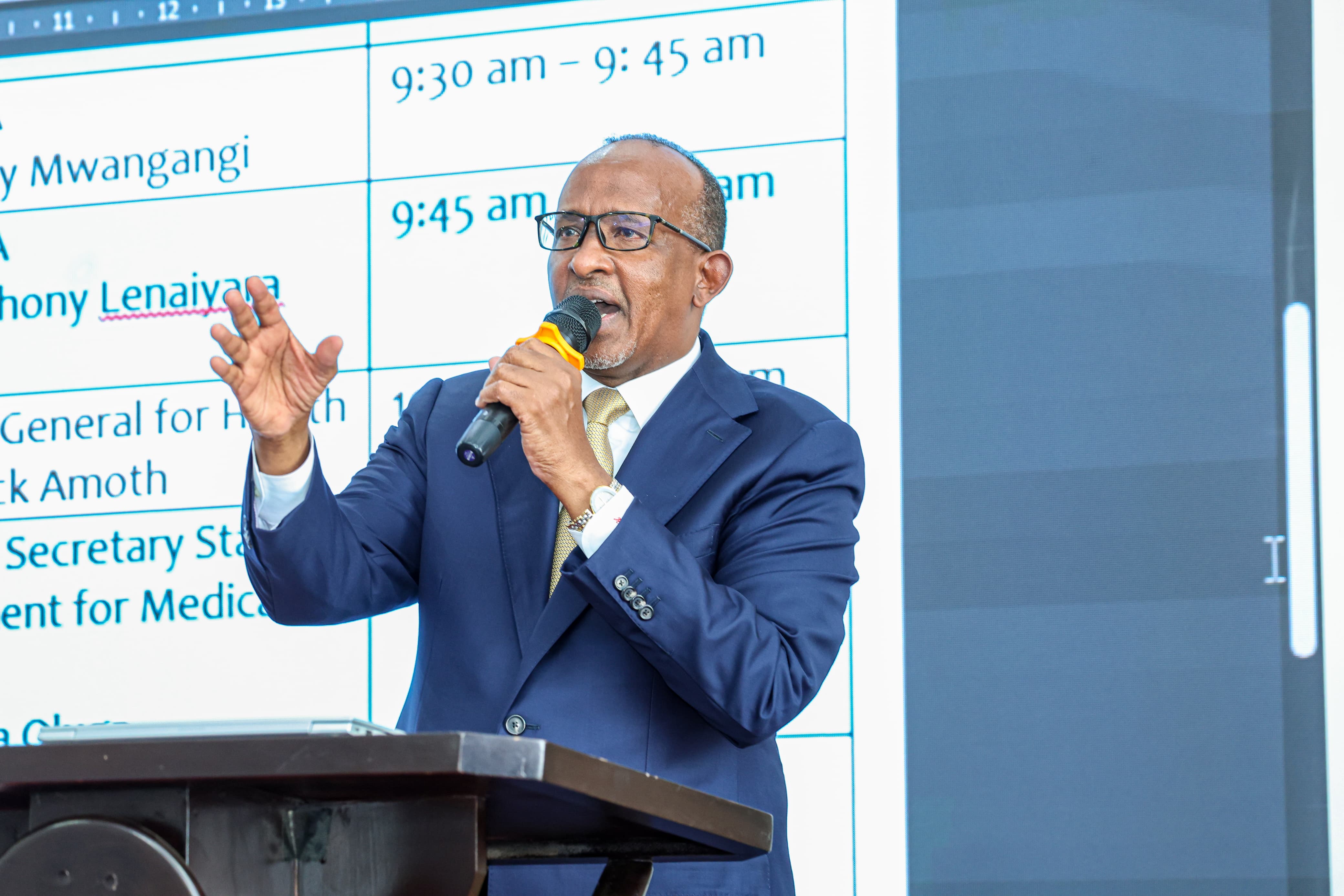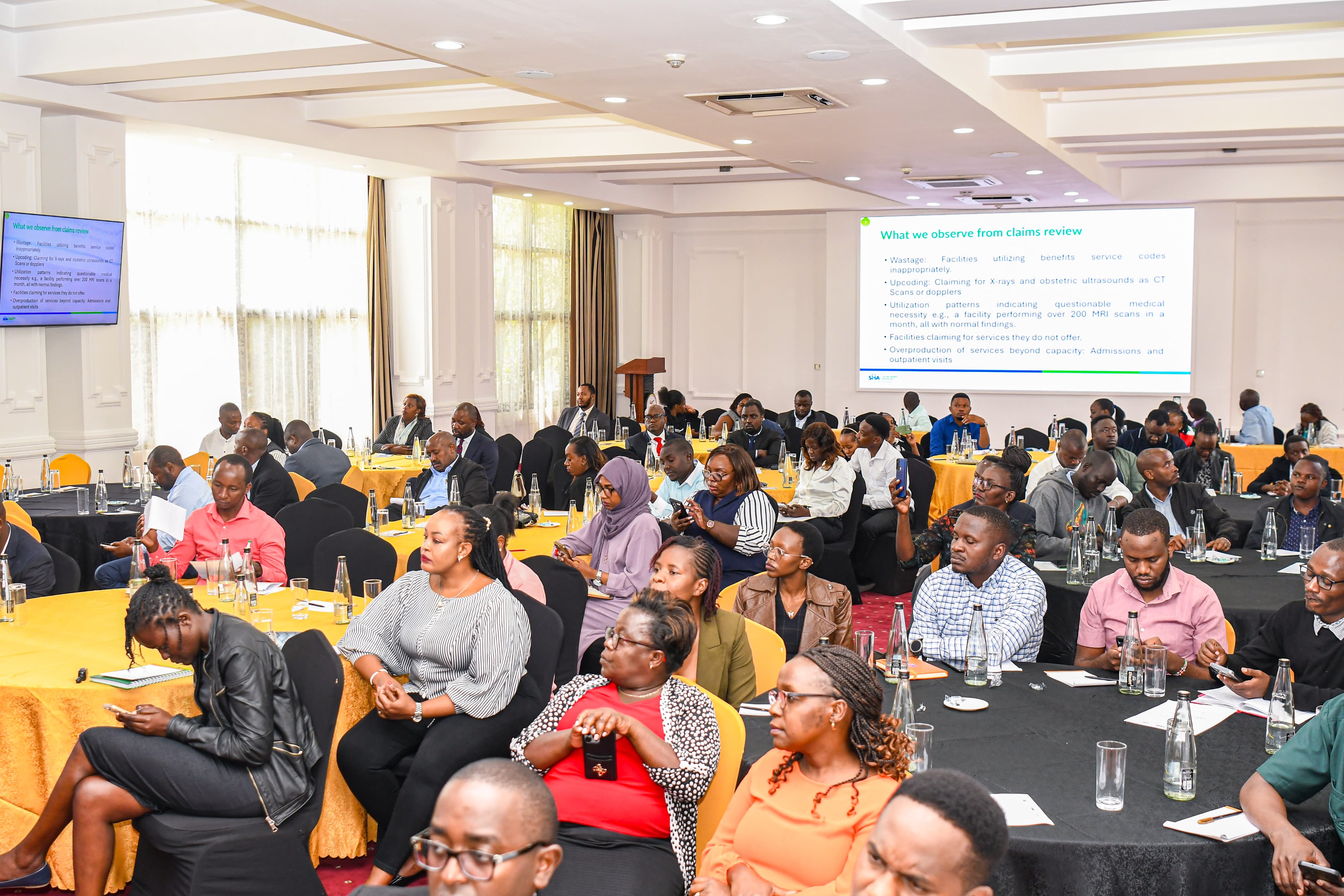
The decision by the Rural and Urban Private Hospitals
Association of Kenya (RUPHA) to suspend the provision of healthcare services
under the Social Health Authority (SHA) is a huge blow to rural communities.
The situation is even more dire for those living in areas
with a shortage of quality public healthcare facilities and who are forced to
depend on private hospitals.
RUPHA, a non-profit organisation, represents private health
facilities located in rural areas as well as those in urban regions serving
medically underserved populations.
It seeks to improve the quality of healthcare services
offered by private hospitals in the neediest communities in the country.
On September 22, 2025, the Association suspended services
for SHA patients following the expiry of a two-week notice it had issued to the
Authority, outlining concerns of delayed and unsettled payments accrued from
National Health Insurance Fund (NHIF) arrears.
The organisation’s leadership argues that the government’s
failure to settle the Sh30 billion arrears and address operational concerns had
made it impractical for private hospitals to continue offering services.
“All healthcare services for SHA beneficiaries would now be
provided on a cash basis to ensure facilities remain operational and able to
serve patients efficiently,” RUPHA chairman Dr. Brian Lishenga stated.
Private hospitals, Lishenga added, have no option but to turn away patients who seek treatment under SHA unless they pay cash for services.
For many Kenyans, the launch of SHA had brought a lot of
relief as it promised to ensure every citizen could access essential health
services without financial disruption.
Millions of Kenyans have since registered with SHA and
placed high hopes in it as a paradigm shift for them and their families.
The suspension of services in rural facilities, therefore,
came as a shock to many individuals who must now dig deep into their pockets to
access care.
One such individual heavily impacted by RUPHA’s decision is
Naomi Waithera, an expectant mother preparing to deliver her third child.
Naomi’s husband, Mr. John Kamau, who had just taken her to hospital, is visibly worried as uncertainty clouds his thoughts on how to foot the bill.

He was informed that his wife would undergo a Caesarean
section in two days due to unforeseen complications, leaving him in despair.
Kamau admits that he is struggling financially and does not
know how he will raise the amount needed for the procedure.
In reaction to Naomi’s case, RUPHA chairman emphasised the
need for a “Marshall plan” to urgently clear debts and redesign SHA
sustainably, warning that without action, healthcare provision will be
impossible under the weight of debt.
Responding to the crisis, the government acknowledged the
frustrations many Kenyans are facing, confirming that they stem from delayed
claims inherited from NHIF and adjustments under SHA.
A document from the Office of the Government Spokesperson
indicated that the Ministry of Health has initiated immediate measures,
including the rollout of a new digital claims system to ensure hospitals are
paid fairly and promptly, ending backlogs of unpaid bills.
Additionally, the Ministry of Health and SHA are working
with Treasury to progressively clear the Sh76 billion legacy debt owed from the
NHIF era while honouring verified current claims.
“Continuous engagements with RUPHA, KHF and KAPH are also
underway to restore confidence, keep services running, and prevent disruption
to patient care,” the document stated.
Government Spokesperson Dr. Isaac Mwaura confirmed the
details, adding: “The government is committed to ensuring that no Kenyan is
left without care. Decisive action is being taken to resolve the cash-payment
issue with private hospitals and secure a sustainable, fair, and transparent
healthcare system.”
On Monday, the Intergovernmental Budget and Economic Council
(IBEC), the body overseeing continuous fine-tuning of Kenya’s devolved system
of governance, met to review ongoing government activities at both national and
county levels.
According to a tweet by Deputy President Prof. Kithure
Kindiki, the meeting received updates on macro-economic fundamentals,
implementation of the Taifa Care Universal Health Programme, and the
establishment of County Aggregation and Industrial Parks (CAIPs), among other
issues.
The DP noted that it was agreed there is need to maintain timely exchequer releases to counties, fast-track the costing of transferred functions, and streamline service delivery across all sectors.

“The National and County Governments are continuously
engaged in advancing collaborative implementation of Kenya’s national goals for
the transformation of the health, housing, agriculture, and manufacturing
sectors, as well as the job and income creation agenda,” the tweet added.
On Thursday, Health Cabinet Secretary Aden Duale held a
high-level consultative meeting with private healthcare providers and senior
SHA officials to deliberate on strategies for strengthening health service
delivery — a critical pillar in scaling up the rollout of Kenya’s Taifa Care
Model.
The discussions focused on ensuring continuity of services
during the early phases of the Social Health Insurance (SHI) rollout, including
capacity building on the new system and addressing outstanding NHIF debts.
The CS assured stakeholders that the government will
commence repayment of pending NHIF bills amounting to Sh5.3 billion,
prioritising hospitals owed between Sh1 million and Sh10 million. An
independent committee will verify claims above Sh10 million before settlement
to safeguard public resources.
Key action points agreed upon included the appointment of
SHA relationship managers for contracted facilities, the establishment of a joint
SHA–DHA service desk at SHA headquarters and Huduma Centres, and real-time
communication on policy amendments.
Duale further underscored the government’s commitment to
fully incorporate private providers and faith-based organisations (FBOs) in the
county-to-county Taifa Care rollout, creating a platform for dialogue and
collaboration to accelerate access to affordable healthcare nationwide.
During the panel session, the CS announced that reforms were
underway to fast-track Kenya’s Universal Health Coverage (UHC) agenda,
acknowledging the central role of the private sector and the importance of
timely payments by SHA for UHC’s sustainability.
Lucy Waithira works at the Office of Government
Spokesperson














